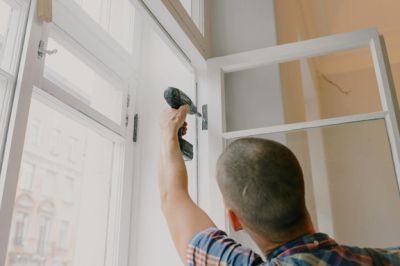Handyman Insurance in Georgia

Whether you’re fixing a leaky faucet in Atlanta or installing drywall in Savannah, working as a handyman in Georgia means juggling a wide variety of tasks—and risks. Handyman insurance is a critical safety net for protecting yourself, your business, and your clients from unexpected liabilities that can arise on the job. Here's what you need to know about securing handyman insurance in the Peach State.
Why Handyman Insurance is Essential in Georgia
As a handyman, you work with tools, enter people’s homes, and provide services that affect the safety and integrity of their property. Without the right insurance coverage, one mistake—or even a simple accident—could lead to lawsuits, property damage claims, or medical bills that could threaten your livelihood.
Whether you're a solo operator or manage a small crew, handyman insurance offers peace of mind and can help you land more jobs, especially when working with property managers, realtors, or general contractors who often require proof of insurance.
Key Types of Insurance for Handymen in Georgia
1. General Liability Insurance
This is the foundation of most handyman insurance policies. It protects you if you’re held responsible for third-party injuries or property damage. For example, if you accidentally damage a client’s hardwood floor while moving a ladder, general liability insurance could cover the cost of repairs.
2. Tools and Equipment Insurance
Your tools are essential to your business. This coverage protects them from theft, loss, or damage—whether they’re in your van, at a job site, or in storage.
3. Commercial Auto Insurance
If you use a vehicle for your handyman business, Georgia law requires commercial auto insurance. It provides liability and physical damage coverage in case you're involved in an accident while on the job.
4. Workers’ Compensation Insurance
If you have employees, Georgia law mandates that you carry workers’ compensation insurance. This covers medical expenses and lost wages if an employee is injured on the job.
5. Professional Liability Insurance (Errors & Omissions)
While not always necessary, this coverage can be useful if a client claims your work was faulty or incomplete, even if no physical damage occurred.
Licensing and Insurance Requirements in Georgia
Georgia does not require a general handyman license for small repair jobs. However, if your work includes electrical, plumbing, or structural changes, you may need a contractor’s license. Even if not legally required, having insurance improves your credibility and protects you from potential financial pitfalls.
In some municipalities, local regulations may still require bonding or proof of insurance before issuing permits or allowing certain types of work. Always check with your local city or county licensing office.
Operating as a handyman in Georgia can be rewarding—but it also comes with real risks. Handyman insurance is a smart investment in your business’s longevity and reputation. By carrying the right coverage, you’ll not only meet legal and client requirements—you’ll also build trust and confidence that can help you stand out in a competitive market.
If you're looking for coverage tailored to your needs, we'd love the opportunity to help answer questions and get you moving in the right direction!




